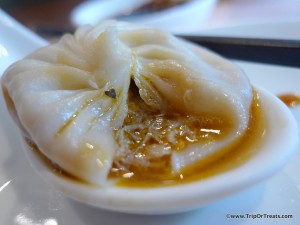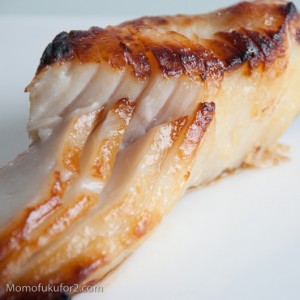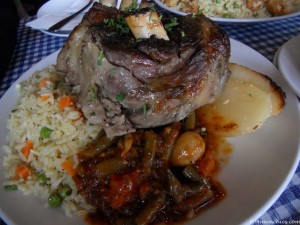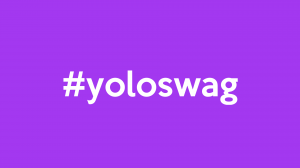By: Kevin (Residence Advisor — Mackenzie)
Ever wanted to try a new cuisine but didn’t know where to look? Crave some late night foods but already had Dominoes every day this week? If you’re like me and love to eat food (from the cheap all-you-can-eat type to the finer, but more expensive and exotic tastes), try the following places that I’ve personally had the pleasure of taste-testing:
Tapas:
The Denman Taphouse Restaurant (Downtown Vancouver)
Every Tuesdays, Thursdays, and Sundays are $6.49/lb wings special (with the purchase of any drink) and personally, these are the best wings I’ve ever had. If you crave spicy food like the Bobby wing from WINGS, then ask for an EXTRA SPICY pound of Denman’s Scorcher. As a bonus, the chef may give you a free pound, should you finish it! My personal favourites here are the Teriyaki Sake and Jamaican Jerk.
Suika Snackbar (West Broadway)
This delicious restaurant looks a bit bland on the outside when you see through the 99 bus window, but the inside is filled with unique decorations and a welcoming staff. Although the prices are a bit higher and the portions a bit smaller, the food is of the upmost quality. The must try dishes are the negitoro (onion + tuna) tartar, grilled sable fish, and kakuni (pork belly) bibambap!
Late Night:
Ramen House (Kitsilano)
If you arrived late on residence past 8pm and are thinking about delivery, I would recommend Ramen House (the name is misleading, no ramen or Japanese cuisine here) for their lamb skewers and juicy pork dumplings (Xiao Long Bao); for some reason they always give us 8 when we pay for 6 of these but I never complain.

No. 9 (Richmond)
If it is past 11pm and you are lucky enough to have access to a vehicle, then your best option would be to grab a couple of friends and head over to Richmond for a satisfying meal at No. 9 Restaurant. It has an extensive menu ranging from BBQ duck and chow mein to burgers and fried chicken. However, it is best known for its large (one dish will make me uncomfortably full and is enough to fill two regular sized stomachs) authentic Chinese dishes. My favourites here are the Honeymoon Fried Rice and Beef Brisket (sub broccoli). BONUS: it’s open 24 hours a day, 7 days a week, 365 days a year, and according to their website, they also do delivery (no personal experience with this).
All You Can Eat:
New India Buffet (West Broadway)
My favourite place for Indian food is in Delta (which is pretty far) so the best and closest to UBC would have to be New India Buffet. It’s best to come here for lunch since it is cheaper and I have not found a difference between their lunch and dinner menus. Being an all-you-can-eat buffet, get ready to stuff up with sweet saffron rice, tasty butter chicken, and unlimited gulab jamun (the tastiest dessert ever).
Kyo Korean BBQ and Sushi House (Granville)
Come here for lunch and you won’t be disappointed! Their menu is approximately $15 for all-you-can-eat Korean BBQ and Japanese cuisine. They offer aburi (lightly seared) salmon and tuna, as well as an interesting deep fried mochi (sweet rice cake) stick. I prefer the BBQ chicken and beef (you grill it yourself), and I had a strong desire to eat their honey garlic potatoes but they were out of stock—try it for me and let me know!
Everything Else:
G-men (Richmond)
If you like instant noodles, why not try the real dish—they’re based off of an authentic restaurant like G-men Ramen. Basic shio (salt) is actually very filling and if you like peanuts, try the tan-tan ramen—the broth will blow you away! As with all ramen that I order, no meal would be complete without the delicious marinated eggs (I get two) and if you like them runny, try an Onsen egg.
Kamei Royale (Downtown Vancouver)
This place is located upstairs and is quite spacious, known for their healthy options such as imperial sushi rice, but I come for the view and other tasty entrees. This place has the most flavourful miso sable fish (black cod) in Vancouver and if you’ve never tried this dish, this should be the first and only place that you go to. Highly recommend: the lobster miso and heart blossom rolls.

Stepho’s (Downtown Vancouver)
The most affordable and largest portions of Greek food you’ll find anywhere—this place is so popular, the lines are out the door and on the street on most nights. To beat the lines you can make reservations for parties of 6 or more; check out the Robson street location or order take-out and enjoy a meal on the pleasant outdoor tables offered by Davie Street. If you do manage to stop by here, a must try is the roast lamb, avgolemono (chicken and lemon) soup, and dolmathes (meat and rice stuffed in vine leaves) BONUS: Everything on the menu basically comes with complimentary rice/pita/tzatziki, as if you weren’t full enough.

Cazba Restaurant (Downtown or West Vancouver)
My friends introduced me to this place a while back and I became an instant fan. The names are not very descriptive of the dishes so I would strongly recommend taking a look at their website before visiting either location. The entrée with the best value (and in my opinion also the best taste) would have to be chelo kebab koobideh (ground beef kebabs with rice/salad and a roasted tomato) and tahdeeg (crispy rice).
Ag Gu Jung (Downtown Vancouver)
I was craving Korean food (BBQ pork belly, in fact) and was headed towards my favourite spot called Pork Belly Beer House (that name I know) but unfortunately, when I arrived, the business appeared to be permanently shut down. However, not to return hungry, I managed to find another Korean restaurant up the street called Ap Gu Jung and have made it a favourite ever since. The Jap Chae (sweet potato noodles) and bulgolgi (beef and vegetables cooked on a hotpot in front of you) are a must try! BONUS: Your meal comes with 3 Korean appetizers: spicy kimci, crunchy seaweed, and (the best ever) honey garlic potatoes—don’t forget your free refill!
Memphis Blues BBQ (West Broadway)
If you like to eat meat, love BBQ sauce, and don’t mind messy fingers, then Memphis has it all. Their platters are the best way to sample a little bit of everything and will satisfy 4, 6, or 10 people! The Memphis Feast includes 6 different meats and 4 different sides and fries, but my favourites from the platter were the rib ends, pulled pork, and corn bread.
Hope you enjoy trying these foods as much as me, and if you know of a great place to eat, let me know!


 Follow
Follow

